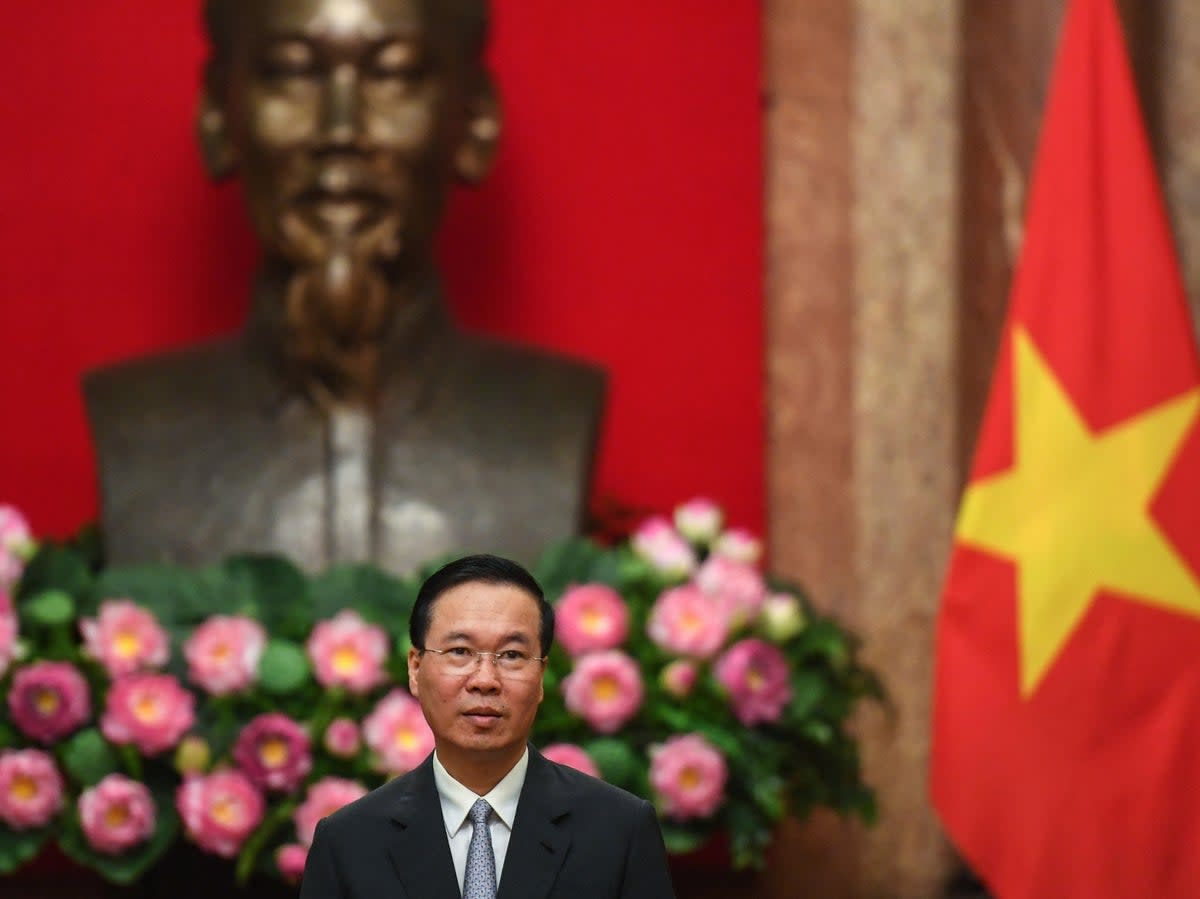Vo Van Thuong: Vietnam’s leader forced out of office over ‘shortcomings’

- Oops!Something went wrong.Please try again later.
Vietnamese president Vo Van Thuong has stepped down from office amid allegations that he violated Communist Party rules.
The Vietnam government said in a statement that Mr Thuong violated party rules, adding that those "shortcomings had negatively impacted public opinion, affecting the reputation of the Party, State and him personally".
The Central Party Committee, a top decision-making body in Communist Vietnam, has approved Mr Thuong's resignation, it added.
The committee's decision preceded a "special session" of the nation's rubber-stamp parliament scheduled on Thursday, when deputies would formalise the resignation.
The Communist Party has held an increasing number of meetings in recent years amid a wide-ranging "blazing-furnace" anti-bribery campaign that has taken down ministers and senior party officials.
Mr Thuong, 53, quit days after the Vietnamese police announced the arrest for alleged corruption a decade ago of a former head of central Vietnam's Quang Ngai province who served while Mr Thuong was party chief there.
Mr Thuong was widely regarded as being close to general secretary Nguyen Phu Trong, Vietnam's most powerful figure and the main architect of the anti-graft campaign. There has been an ongoing power struggle in the higher echelons of the Communist Party to replace the 79-year-old ailing general secretary.
When former president Nguyen Xuan Phuc quit last year after the party blamed him for "violations and wrongdoing" by officials under his control, it took one month and a half for lawmakers to appoint Thuong as his successor.
The current political crisis may well be resolved with the swift election of a new president, but risks remain that repeated reshuffles of top leaders hurt business sentiment in a country that is highly dependent on foreign investment.
Mr Thuong's "removal could see policy and administrative decisions slow further as officials are more anxious about the arc of the anti-corruption campaign", a Vietnam-based advisor to foreign corporates told the Associated Press.

